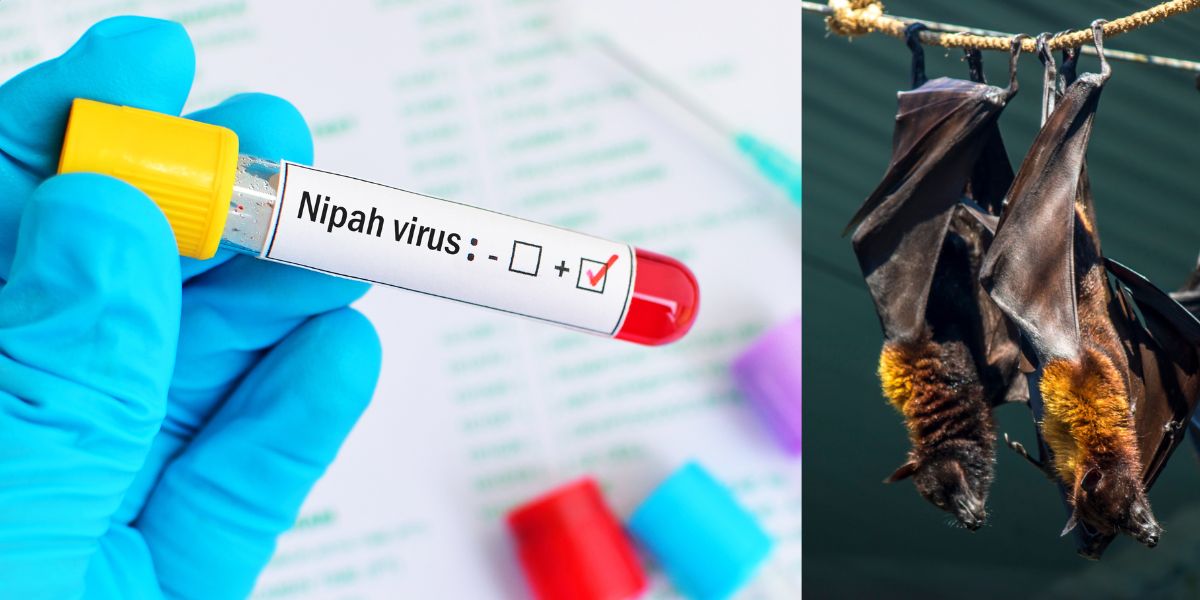The government of Kerala has taken proactive measures in response to the recent detection of two deaths caused by the Nipah virus, a deadly brain-damaging disease. To prevent further spread, several schools and offices have been temporarily closed, and seven villages have been declared containment zones.
The alert was issued by the Kerala Health Department following the tragic deaths of two individuals due to fever in Kozhikode. Union Health Minister Mansukh Mandaviya confirmed that the Nipah virus was responsible for these fatalities. Responding to the situation, Kerala Health Minister Veena George chaired a high-level meeting to assess the current state of affairs.
It's worth noting that Kozhikode has faced the Nipah virus before, with outbreaks occurring in 2018 and 2021. During the initial outbreak in 2018, 23 cases were identified, and sadly, 17 people lost their lives to this zoonotic virus.
Officials from Kerala's health ministry have indicated that the virus can be transmitted to humans through direct contact with the bodily fluids of infected bats, pigs, or other individuals.
In response to the recent cases, the government has imposed lockdown-like restrictions in the affected containment zones to prevent further transmission of the virus.
The two recent deaths occurred at a private hospital in Kozhikode. Four individuals who were under treatment, including relatives of the second deceased person, have had their samples sent for testing. Two of them have tested positive for the Nipah virus, including a 9-year-old child and a 24-year-old relative. The 9-year-old child is currently receiving ventilation treatment at a private hospital.
About the Nipah Virus:
Symptoms:
1. Fever: Nipah virus infection often begins with a high fever, which can be sudden and severe.
2. Headache: Persistent and intense headaches are common early symptoms of the Nipah virus.
3. Dizziness: Patients may experience dizziness or disorientation, which can progress as the illness worsens.
4. Nausea and Vomiting: Nausea and vomiting are frequent symptoms and can contribute to dehydration.
5. Respiratory Distress: Some individuals with Nipah virus infection develop severe respiratory problems, including cough and difficulty breathing.
6. Seizures: In some cases, seizures have been reported as a symptom of Nipah virus infection.
7. Muscle Pain: Muscular pain and weakness may accompany other symptoms.
Causes:
1. Zoonotic Origin: The Nipah virus is believed to originate from animals, particularly fruit bats. It can be transmitted to humans when they come into contact with infected animals or their secretions.
2. Human-to-Human Transmission: In certain instances, the virus can spread from person to person, primarily through close contact with respiratory secretions, saliva, or other bodily fluids of an infected individual.
Precautions:
1. Avoid Close Contact: During outbreaks, it's crucial to avoid close contact with individuals who display symptoms of Nipah virus infection.
2. Hand Hygiene: Regularly wash your hands with soap and water for at least 20 seconds, especially after caring for sick individuals or handling animals.
3. Use of Personal Protective Equipment (PPE): Healthcare workers and caregivers should use appropriate PPE, such as masks, gloves, and gowns, when in contact with infected patients.
4. Isolation and Quarantine: Patients diagnosed with Nipah virus should be isolated to prevent further transmission. Close contacts may need to be quarantined.
Cure:
Currently, there is no specific antiviral treatment for Nipah virus infection. Supportive care, including intravenous fluids and symptom management, is the primary approach to treating patients with Nipah virus.
It's important to note that Nipah virus outbreaks are relatively rare, but when they occur, swift and coordinated efforts are crucial to contain the virus and prevent further transmission. Public health authorities play a significant role in managing and responding to these outbreaks to safeguard public health

 Two individuals, a 9-year-old child and a 24-year-old relative, tested positive for the Nipah virus among four tested, including relatives of the second deceased person. The child is receiving ventilation treatment.
Two individuals, a 9-year-old child and a 24-year-old relative, tested positive for the Nipah virus among four tested, including relatives of the second deceased person. The child is receiving ventilation treatment.










.jpeg)











.jpg)








